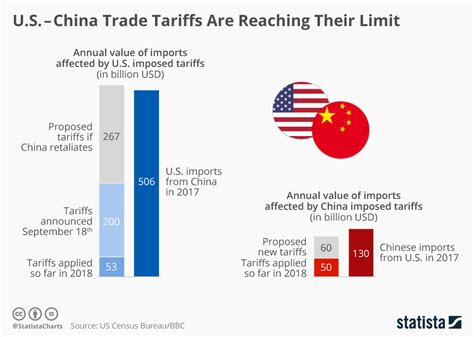
Mark Cuban is proposing a radical shift in healthcare: eliminating insurance premiums and transitioning to an all-cash payment system, a concept he believes could significantly lower costs and increase transparency.
Billionaire entrepreneur Mark Cuban is advocating for a major overhaul of the U.S. healthcare system, suggesting a move away from traditional insurance premiums to a direct, all-cash payment model. Cuban, known for his ventures in various industries, including the pharmaceutical sector with Cost Plus Drugs, believes this approach could drive down costs and improve transparency for patients. His proposal, detailed in recent discussions and media appearances, aims to address the complexities and inefficiencies that plague the current healthcare landscape.
Cuban argues that the existing system, heavily reliant on insurance companies and intricate billing processes, often obscures the true cost of medical services. This lack of transparency, he contends, leads to inflated prices and unnecessary expenses for both individuals and businesses. By cutting out the middleman – insurance premiums – and allowing patients to pay directly for services, Cuban envisions a more competitive market where healthcare providers are incentivized to offer fair and transparent pricing.
“The idea is simple: eliminate the complexity and opacity of insurance premiums and instead, allow consumers to pay directly for healthcare services at transparent, pre-negotiated prices,” Cuban stated in a recent interview. He believes that this model would empower patients to shop around for the best prices, leading to a natural deflation of healthcare costs.
The core of Cuban’s argument rests on the premise that healthcare, like any other market, should be driven by supply and demand. When consumers are aware of the actual cost of a service, they are more likely to make informed decisions and seek out the most cost-effective options. This, in turn, would force healthcare providers to become more competitive and offer more reasonable prices.
Cuban’s Cost Plus Drugs, launched in January 2022, serves as a real-world example of this principle in action. The online pharmacy offers generic drugs at cost, plus a 15% markup, a $3 dispensing fee, and shipping. This transparent pricing model has resulted in significant savings for consumers, often far below what they would pay through traditional insurance plans. Cuban hopes to extend this model to other areas of healthcare, such as doctor visits and medical procedures.
The proposed all-cash payment system is not without its challenges. Critics argue that it could disproportionately affect low-income individuals and those with chronic conditions who rely on insurance to cover their healthcare expenses. Cuban acknowledges these concerns and suggests potential solutions, such as government subsidies or employer-sponsored healthcare accounts, to help offset the cost for those who cannot afford to pay out-of-pocket.
Furthermore, the transition to an all-cash system would require significant changes to the existing infrastructure and regulatory framework. Healthcare providers would need to adapt to a new billing model, and patients would need to become more proactive in managing their healthcare expenses. However, Cuban believes that the potential benefits – lower costs, increased transparency, and improved access to care – outweigh the challenges.
The current healthcare system is notoriously complex, with a myriad of stakeholders, including insurance companies, hospitals, pharmaceutical companies, and government agencies. This complexity often leads to confusion, frustration, and high costs for patients. Cuban’s proposal aims to simplify the system by removing unnecessary layers and empowering patients to take control of their healthcare decisions.
One of the key advantages of an all-cash payment system is its potential to reduce administrative overhead. Insurance companies often spend a significant amount of time and resources on processing claims, negotiating prices with providers, and managing their networks. By eliminating these functions, healthcare providers could potentially lower their costs and pass the savings on to patients.
Moreover, an all-cash system could incentivize healthcare providers to focus on providing high-quality care rather than maximizing profits. Under the current system, providers are often incentivized to order unnecessary tests and procedures in order to generate more revenue. In an all-cash system, providers would need to compete on price and quality, which could lead to better patient outcomes.
However, the transition to an all-cash system would also require a shift in mindset. Patients would need to become more informed consumers, actively seeking out information about prices and quality. Healthcare providers would need to become more transparent about their pricing and be willing to negotiate with patients.
Cuban’s proposal has sparked a lively debate within the healthcare industry, with some experts praising its potential to disrupt the status quo and others raising concerns about its feasibility and potential impact on vulnerable populations. Regardless of the outcome, his proposal has brought much-needed attention to the challenges facing the U.S. healthcare system and the need for innovative solutions.
The debate surrounding healthcare reform is not new, and numerous proposals have been put forward over the years, ranging from single-payer systems to market-based reforms. Cuban’s proposal falls into the latter category, emphasizing the importance of consumer choice and market competition.
One of the key challenges in reforming the healthcare system is finding a solution that is both effective and politically feasible. The healthcare industry is a powerful lobby, and any attempt to fundamentally alter the system is likely to face strong opposition. Cuban’s proposal, while ambitious, may be more politically palatable than some other reform proposals, as it does not involve a complete government takeover of the healthcare system.
However, the success of an all-cash payment system would depend on a number of factors, including the willingness of healthcare providers to adopt transparent pricing practices, the ability of patients to access information and make informed decisions, and the availability of financial assistance for those who cannot afford to pay out-of-pocket.
Cuban’s Cost Plus Drugs has demonstrated that transparency and affordability are possible in the pharmaceutical industry. By extending this model to other areas of healthcare, he hopes to create a system that is more accessible, affordable, and efficient for all Americans.
The potential impact of Cuban’s proposal on the healthcare industry is significant. If successful, it could lead to a major shift in how healthcare is delivered and financed in the United States. It could also serve as a model for other countries looking to reform their healthcare systems.
However, the road to reform is likely to be long and challenging. The healthcare industry is deeply entrenched, and any attempt to disrupt the status quo is likely to face resistance. Cuban’s proposal is just one piece of the puzzle, but it represents a bold and innovative approach to addressing the challenges facing the U.S. healthcare system.
Expanded Context and Background Information:
The U.S. healthcare system is widely regarded as one of the most expensive and complex in the world. Despite spending more per capita on healthcare than any other developed nation, the United States lags behind in key health outcomes, such as life expectancy and infant mortality.
The high cost of healthcare in the U.S. is driven by a number of factors, including the complexity of the insurance system, the lack of price transparency, the high cost of pharmaceuticals, and the administrative overhead associated with managing the system.
Insurance companies play a central role in the U.S. healthcare system, acting as intermediaries between patients and healthcare providers. They negotiate prices with providers, process claims, and manage their networks. However, this system can also lead to inefficiencies and high costs.
One of the main criticisms of the insurance-based system is its lack of transparency. Patients often do not know the actual cost of medical services until they receive a bill, and even then, the billing process can be confusing and opaque. This lack of transparency makes it difficult for patients to shop around for the best prices and make informed decisions about their healthcare.
The high cost of pharmaceuticals is another major contributor to the overall cost of healthcare in the U.S. Pharmaceutical companies often charge high prices for their drugs, and there is limited regulation to control these prices. This can make it difficult for patients to afford the medications they need, particularly those with chronic conditions.
Administrative overhead is also a significant factor in the high cost of healthcare. Insurance companies and healthcare providers spend a considerable amount of time and resources on processing claims, managing their networks, and complying with regulations. This administrative overhead adds to the overall cost of healthcare and makes the system more complex.
Numerous proposals have been put forward to reform the U.S. healthcare system, ranging from single-payer systems to market-based reforms. Single-payer systems, such as those in Canada and the United Kingdom, involve the government providing healthcare to all citizens, funded through taxes. Market-based reforms, on the other hand, emphasize the importance of consumer choice and market competition.
Cuban’s proposal for an all-cash payment system falls into the latter category. He believes that by removing the complexity and opacity of insurance premiums, and allowing patients to pay directly for healthcare services at transparent, pre-negotiated prices, the market can drive down costs and improve access to care.
In-Depth Analysis:
Cuban’s proposal represents a significant departure from the traditional insurance-based model of healthcare in the U.S. By advocating for an all-cash payment system, he is challenging the fundamental assumptions about how healthcare should be financed and delivered.
The potential benefits of an all-cash system are numerous. It could lead to lower costs, increased transparency, reduced administrative overhead, and improved patient outcomes. By empowering patients to shop around for the best prices, it could create a more competitive market that incentivizes healthcare providers to offer fair and transparent pricing.
However, the transition to an all-cash system would also present a number of challenges. It could disproportionately affect low-income individuals and those with chronic conditions who rely on insurance to cover their healthcare expenses. It would also require significant changes to the existing infrastructure and regulatory framework.
One of the key challenges is ensuring that everyone has access to affordable healthcare, regardless of their income or health status. Cuban suggests potential solutions, such as government subsidies or employer-sponsored healthcare accounts, to help offset the cost for those who cannot afford to pay out-of-pocket.
Another challenge is overcoming the resistance of the healthcare industry, which has a vested interest in maintaining the status quo. Insurance companies, hospitals, and pharmaceutical companies are likely to oppose any reforms that threaten their profits.
Despite these challenges, Cuban’s proposal has the potential to transform the healthcare landscape in the U.S. By bringing attention to the challenges facing the current system and advocating for innovative solutions, he is contributing to a much-needed debate about the future of healthcare.
The success of Cuban’s proposal will depend on a number of factors, including the willingness of healthcare providers to adopt transparent pricing practices, the ability of patients to access information and make informed decisions, and the availability of financial assistance for those who cannot afford to pay out-of-pocket.
Cuban’s Cost Plus Drugs has demonstrated that transparency and affordability are possible in the pharmaceutical industry. By extending this model to other areas of healthcare, he hopes to create a system that is more accessible, affordable, and efficient for all Americans.
Potential Criticisms and Counterarguments:
While Cuban’s proposal has garnered significant attention and support, it has also faced criticism from various stakeholders. Some of the main criticisms include:
-
Impact on vulnerable populations: Critics argue that an all-cash system could disproportionately affect low-income individuals and those with chronic conditions who rely on insurance to cover their healthcare expenses. Without insurance, these individuals may struggle to afford necessary medical care, leading to poorer health outcomes.
-
Feasibility of implementation: The transition to an all-cash system would require significant changes to the existing infrastructure and regulatory framework. Healthcare providers would need to adapt to a new billing model, and patients would need to become more proactive in managing their healthcare expenses. The complexity of these changes raises concerns about the feasibility of implementing such a system.
-
Potential for adverse selection: In an all-cash system, healthy individuals may be less likely to seek out medical care, while those with chronic conditions may be more likely to do so. This could lead to adverse selection, where the pool of patients seeking care becomes sicker and more expensive, driving up costs for everyone.
-
Lack of protection against catastrophic events: Insurance provides protection against catastrophic medical events, such as serious injuries or illnesses. In an all-cash system, individuals may be vulnerable to financial ruin if they experience a major medical crisis.
-
Difficulty in negotiating prices: Individual patients may lack the bargaining power to negotiate fair prices with healthcare providers. Insurance companies, on the other hand, have the leverage to negotiate lower prices on behalf of their members.
Cuban acknowledges these concerns and suggests potential solutions, such as government subsidies or employer-sponsored healthcare accounts, to help offset the cost for those who cannot afford to pay out-of-pocket. He also argues that the increased transparency and competition of an all-cash system would drive down costs, making healthcare more affordable for everyone.
However, critics remain skeptical that these solutions would be sufficient to address the potential challenges of an all-cash system. They argue that insurance plays a vital role in protecting individuals from financial risk and ensuring access to affordable healthcare.
Frequently Asked Questions (FAQ):
Q1: What is Mark Cuban’s proposal for healthcare reform?
A1: Mark Cuban is proposing a shift away from traditional insurance premiums to an all-cash payment system for healthcare services. The idea is that patients would pay directly for services at transparent, pre-negotiated prices, cutting out the complexities of insurance billing and potentially lowering costs.
Q2: How would an all-cash payment system lower healthcare costs?
A2: Cuban believes that transparency in pricing and increased competition among healthcare providers would drive down costs. When patients know the actual cost of services upfront, they can shop around for the best prices. This competition would incentivize providers to offer more reasonable and transparent pricing. Additionally, reducing the administrative overhead associated with insurance billing could lead to further cost savings.
Q3: What are the potential drawbacks of an all-cash payment system?
A3: Critics argue that it could disproportionately affect low-income individuals and those with chronic conditions who rely on insurance to cover their healthcare expenses. There are also concerns about the feasibility of implementing such a system and the potential for adverse selection, where healthy individuals opt out of seeking care, driving up costs for those who need it. Further, it may leave individuals vulnerable to high costs due to catastrophic medical events.
Q4: How does Cost Plus Drugs relate to Cuban’s healthcare proposal?
A4: Cost Plus Drugs, Cuban’s online pharmacy, serves as a proof-of-concept for his broader healthcare proposal. It demonstrates that transparent pricing and direct-to-consumer models can significantly lower the cost of prescription drugs. He hopes to extend this approach to other areas of healthcare, such as doctor visits and medical procedures. Cost Plus Drugs purchases generic drugs directly from manufacturers and sells them with a fixed 15% markup, a $3 dispensing fee, and shipping, often resulting in substantial savings compared to traditional pharmacies and insurance plans.
Q5: What are some potential solutions to address the drawbacks of an all-cash system?
A5: Cuban suggests government subsidies or employer-sponsored healthcare accounts to help offset the cost for those who cannot afford to pay out-of-pocket. Other potential solutions include establishing high-risk pools to cover individuals with pre-existing conditions and implementing regulations to ensure price transparency and prevent price gouging. A hybrid approach, combining elements of both insurance and cash-pay models, could also be considered. Further, a system of health savings accounts (HSAs) could provide a tax-advantaged way for individuals to save for healthcare expenses.
In conclusion, Mark Cuban’s proposal for an all-cash payment system in healthcare represents a bold and innovative approach to addressing the challenges facing the U.S. healthcare system. While it faces significant challenges and criticisms, it has the potential to transform the industry by increasing transparency, reducing costs, and empowering patients to take control of their healthcare decisions. The debate surrounding his proposal is likely to continue, and its ultimate success will depend on a number of factors, including the willingness of stakeholders to embrace change and the implementation of effective solutions to mitigate potential drawbacks.









